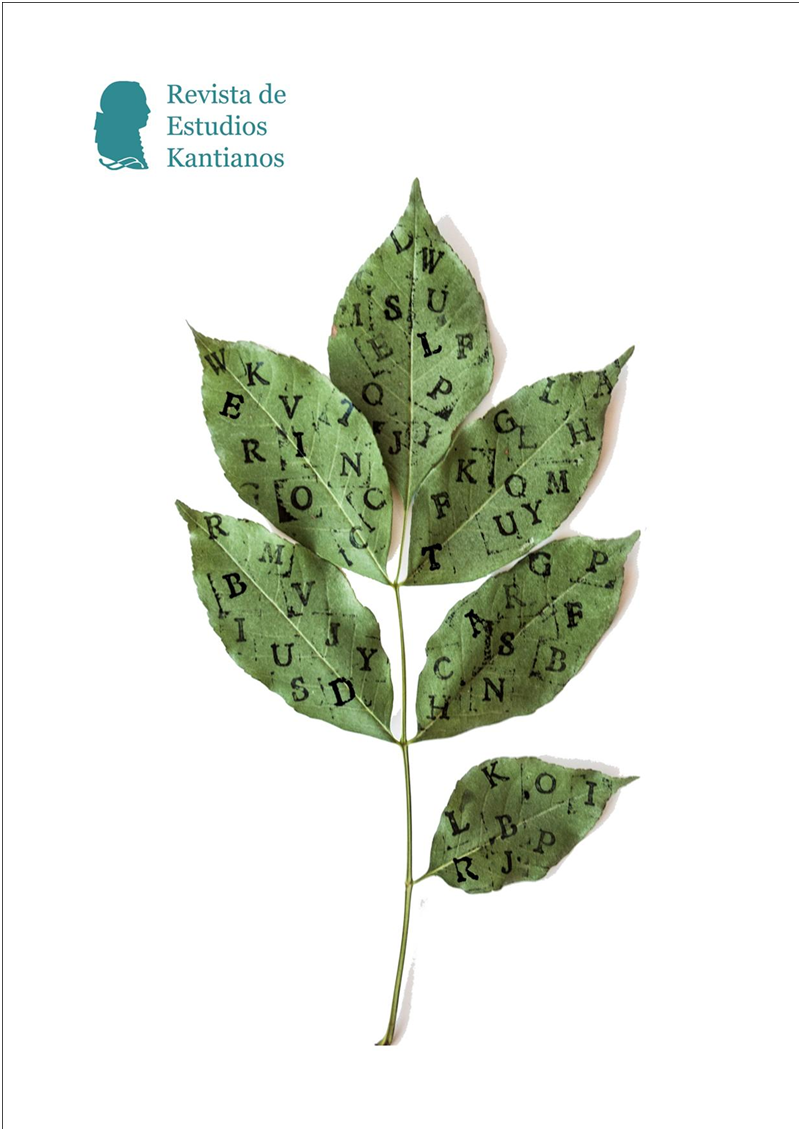Reason and its Bedürfnis
DOI:
https://doi.org/10.7203/REK.9.1.28138Keywords:
needs of reason, significance, locality, metaphysics Abstract
Abstract
In this article I argue that the notion of Bedeutung (meaning, sense) in Kant is closely related to that of Bedürfnis (need) and that the former can be better understood by clarifying the latter. After an initial overview of the needs of reason in general, I will focus on the two directions of this need in order to state that they characterise reason and make it local. By this I mean that reason, while aspiring to wholeness, only functions adequately within a limited framework. It is from the cooperation of both directions of reason’s needs that meaning develops.
 Downloads
Downloads
 References
References
Allison, H. (2000). Is the Critique of Judgment ‘post-critical’? In S. Sedgwick (Ed.), The Reception of Kant’s Critical Philosophy: Fichte, Schelling and Hegel (pp. 78–92). Cambridge University Press.
Beneke, F. E. (1832). Kant und die philosophische Aufgabe unserer Zeit. Mittler.
Birken-Bertsch, H. (2015) Interesse. In M. Willaschek, J. Stolzenberg, G. Mohr, and S. Bacin (Eds.), Kant-Lexikon (pp. 1181–1188). Walter de Gruyter.
Brandt, R. (1989). The Deduction of the Critique of Judgment: Comments on Hampshire and Horstmann. In E. Förster (Ed.), Kant’s Transcendental Deductions (pp. 177–192). Stanford University Press.
Engelhard, K. (2015). Bedeutung, transzendentale. In M. Willaschek, J. Stolzenberg, G. Mohr, and S. Bacin (Eds.), Kant-Lexikon (pp. 222–223). Walter de Gruyter.
Ferrarin, A. (2015). The Powers of Pure Reason: Kant and the Idea of Cosmic Philosophy. University of Chicago Press.
Guyer, P. (1997). Kant and the Claims of Taste. Cambridge University Press.
Hamann, J. G. (1825). Metakritik über den Purismus der reinen Vernunft. In F. Roth (Ed.), Hamann’s Schriften (pp. 1–17). Reimer.
Herman, B. (1984). Mutual Aid and Respect for Persons. Ethics, 94(4), 577–602.
Horstmann. R. (1989). Why Must There Be a Transcendental Deduction in Kant’s Critique of Judgment? E. Förster (Ed.), Kant’s Transcendental Deductions (pp. 157–176). Stanford University Press.
Kant, I. (1990–). Gesammelte Schriften. Berlin-Brandeburgische Akademie der Wissenschaften. Walter de Gruyter [1992–2016, Cambridge Edition of the Works of Immanuel Kant. Cambridge University Press].
Makkreel, R. (2006). Reflection, Reflective Judgment, and Aesthetic Exemplary. In R. Kukla (Ed.), Aesthetics and Cognition in Kant’s Critical Philosophy (pp. 223–244). Cambridge University Press.
Mora, A. M. (2009). Sensibilización y moralidad en Kant. Eidos: Revista de Filosofía de la Universidad del Norte, 10, 92–133.
Neuhouser, F. (2014), Rousseau’s Critique of Inequality: Reconstructing the Second Discourse. Cambridge University Press.
Nuzzo, A. (2008). Ideal Embodiment. Bloomington.
Rawls, J. (2003). Lectures on the History of Moral Philosophy. Cambridge University Press.
Rousseau, J.-J. (1959–1969). Emile. In Œuvres Complètes, Vol. 2. Gallimard.
Sticker, M. (2022). True Need in Kant. Kant-Studien, 113(3), 432–458.
Tuschling, B. (1992). The System of Transcendental Idealism: Questions Raised and Left Open in the Kritik der Urteilskraft. The Southern Journal of Philosophy, 30, 109–127.
Willaschek, M. (1998). Phaenomena/Noumena und die Amphibolie der Reflexionsbegriffe (A235/B294–A292/B349). In G. Mohr, and M. Willaschek (Eds.), Klassiker Auslegen. Immanuel Kant: Kritik der reinen
Vernunft (pp. 324–352). Berlin Akademie Verlag.
Willaschek, M. (2018). Kant on the Sources of Metaphysics. The Dialectic of Pure Reason. Cambridge University Press.
Downloads
Published
How to Cite
-
Abstract112
-
PDF39
Issue
Section
License
![]()
The authors who publish in this journal agree with the following terms:
- The authors retain their copyright and guarantee to the journal the right to be the first to publish the work and to license it under a Creative Commons Attribution License that allows others to share the work with an acknowledgement of its authorship and the initial publication in this journal.
- Authors may separately establish additional agreements for non-exclusive distribution of the version of the work published in the journal (for example, placing it in an institutional repository or publishing it in a book), with acknowledgement of its initial publication in this journal.
- Authors are allowed and encouraged to disseminate their work electronically (e.g., in institutional repositories or on their own website) before and during the submission process, as this can lead to productive exchanges as well as earlier and greater citation of published work (see The Effect of Open Access).








